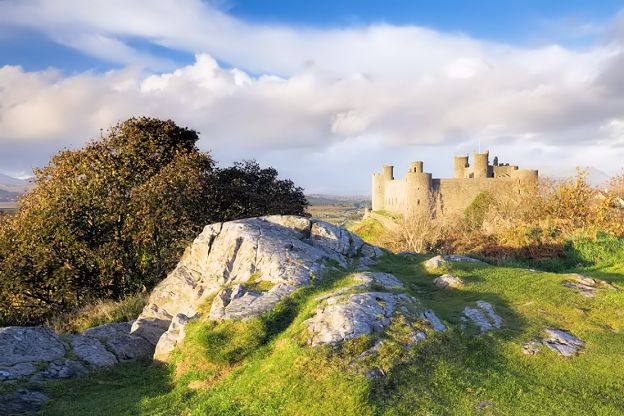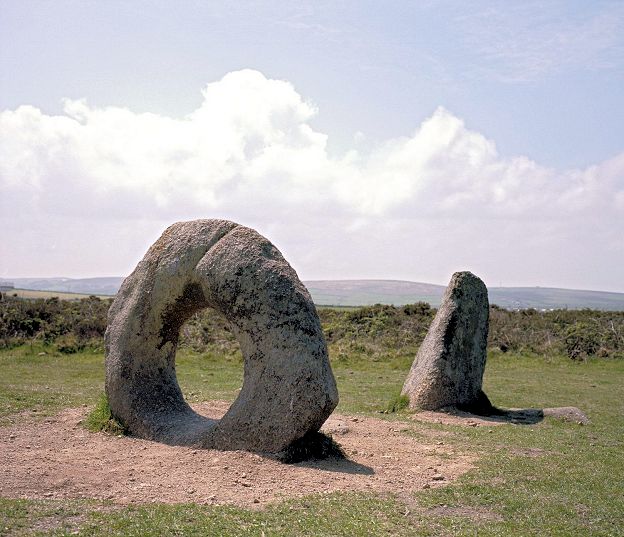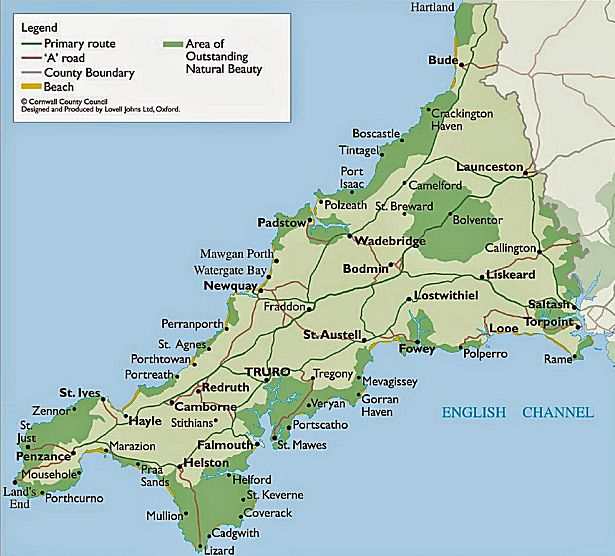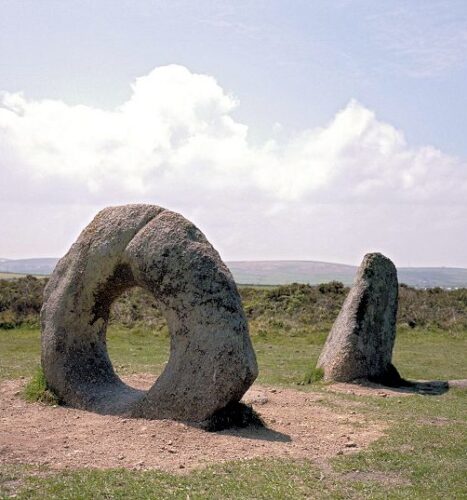
Celtic culture and minorities. Red Indians of Europe, or the Celts, an article that explains the origin of the Celtic culture and the problems of the new minorities, with a particular view to the Cornish world.
Nowadays, the word “Celtic” is most frequently associated with sports teams (i.e. Boston and Glasgow) of an Irish origin. Yet this Irish association doesn’t do justice to the Celts (pronounced with a hard “C”), whose influence is also strong in parts of Britain and France. These communities are the remnants of an empire that once stretched across Europe.
Originating in the Rhineland some 3,000 years ago, the “Keltoi” spread out in all directions, settling. in Britain, Ireland, France, Spain. Italy (particularly Lombardy), Greece and even Turkey. The Celts have been described as “the Red Indians of Europe.” Just as the North American Indian’s problems started with the advent of the more materialistic culture of the white man, the Celt’s undoing was the Roman Empire.
History is usually written by the winners and for this reason, the Celts have been portrayed’ as “barbarians.” The Romans are credited with being “the road builders” of Europe: there is evidence to suggest that the Celts might be more deserving of this title. Their achievements in art, music and building have also been underestimated.
From being at the centre of Europe, the Celts have ended up on the periphery, the so-called “Celtic fringe.” The Welsh are one of six surviving” Celtic groups: along with “the Cornish”’ and the Bretons, they form part of the “Brythonic” branch, whereas the Irish, Scots and Manx belong to the “Goidelic” (or Gaelic) group.
Although large tracts of countryside have been spoiled “by mining” and other industrial horrors, Wales remains a wild and beautiful country and it is well worth a visit at any time.

The poet Dylan Thomas (1914-53) offers an interesting example of the country’s language divide. Thomas is considered Wales’ greatest writer and he is second only to Shakespeare in the sale of poetry books in the United States. Yet all of Thomas’ work was written in English for he, like many Welshmen, couldn’t speak Welsh.
The most important aspect of the Celtic culture is undoubtedly that of language, which has been destroyed by centuries of government centralisation. Methods have varied: in the “Highland Clearances”” of the eighteenth century, for example, Gaelic speakers were put to death. Today there are some 16 million people living in the Celtic parts of the British Isles and Brittany, but only two million of them actually speak their original languages.
In recent years there have been a number of attempts to revive these languages and they have often been associated with Irish, Scottish and Welsh nationalist movements. Language revivals have been known to work: the most successful examples are probably Hebrew, Norwegian and Finnish. Yet Celtic and Gaelic language promoters are usually dismissed (by the English) as a bunch of harmless eccentrics.
In the Republic of Ireland, certainly, the Irish language is, under the constitution, regarded as the first official national language of Ireland. The last census, 1981: just over a million people, that is 31.5 per cent of the population of the Republic of Ireland, gave themselves as Irish-speaking but, in terms of actual day-to-day usage, the Irish language is not in all that good a state in the Irish Republic.
So there are tremendous threats, via English, particularly through the media, through television and radio. You still have native speaking Celts who will deny that they can speak their language because they feel that, after the centuries, it’s a badge” of social inferiority, which is a very, very sad attitude. Conversely amongst the nationalist movements of people that have learned the language, as opposed to picking it up from their parents, you do have the reverse reaction, that they will deny that they speak English, but that is very few and far between.

Cornwall is an area of land that covers the south-western tip of England. Its wild, rocky coastline has been an inspiration to writers as diverse as Alfred, Lord Tennyson, Virginia Woolf and Daphne du Maurier. Cornwall’s scenery also provides inspiration to the hordes of tourists who invade it every year. Cornwall is technically an English county with a population of 430,000. It is somewhat isolated from the rest of Britain, and many Cornishmen consider themselves to be part of a separate nation. Some of them actively campaign for independence. To the English, who tend to understand – even if they don’t accept – Welsh and Scottish claims to nationhood, the idea of an independent Cornwall is little more than a joke.
Cornwall is rich in prehistoric stone monuments. Christianity was introduced to Cornwall by Celts from Ireland and Wales as early as the 5th century. Although most of England was conquered by the Saxons by the 7th century, Cornwall was not taken by them until the 11th century. The duchy of Cornwall has traditionally descended to the eldest son of the monarch since its establishment in 1337.
During the 18th century a strong Methodist movement arose here, and Methodism has since remained the major faith. Cornish, one of the Celtic languages, was spoken here as a first language until the late 18th century, when the last native speaker died. In the 20th century renewed interest in Celtic history and culture among the Cornish people led to a gradual revival of the Cornish language.
Whether it is eccentric or not, there is plenty of historical evidence to support Cornwall’s claim to nationhood. The Cornish are one of the six Celtic peoples of western Europe: along with the Welsh and the Bretons, they form part of the Brythonic Celtic grouping, as opposed to the Goidelic Celts of Ireland, Scotland and the Isle of Man. Cornwall’s absorption by England was never formally ratified. Its separateness was acknowledged by the creation of the Duchy of Cornwall, a medieval institution which had the task of administering these lands. The title of the Duke of Cornwall, like that of the Prince of Wales, is granted to the English monarch’s eldest son: Prince Charles is the current Duke of Cornwall.
But what do the nationalists make of the Duchy? It’s another institution which shows that Cornwall had an independent past and still has an independent constitution. Cornwall has never been incorporated into England. It’s governed administratively under English law and through England, but there’s never been any sort of Act of Union, like there has between Scotland… or any sort of deeds of incorporation.

If you look back at old documents, there’s several old documents which quote “England and Cornwall, Anglia et Cornubia” on them. So, again, it’s an archaic institution which helped to maintain the identity of Cornwall. It’s not necessarily relevant, in its archaic form, to modern-day Cornwall. Mebyon Kernow, which has about 300 members, isn’t the only group campaigning for Cornish independence. In the 1970s some activists broke away in order to form the Cornish Nationalist Party, which today has about 500 members.
Unfortunately, the attempts to revive the Cornish language have had more than their fair share of difficulties. As there were no native speakers of Cornish when the language revival began, there was disagreement about which type of Cornish should provide the basis for the modern version. As a result, there are now three different forms of Cornish: Unified, Phonemic and Traditional.
But why do the Cornish language and independence movements have such a tendency to divide? Well, I think you go back in history. That was… the Romans found out that the Celts never united in a good cause, and I think they suffer from that today, that as sure as you get a good cause going along, you get somebody else who questions the leadership and says that “I could do a better job and, in fact, not only could I do a better job, but I’ve got a better idea.
In medieval times, Cornwall had another unusual administrative entity which was known as the Stannary Parliament. This was primarily for the tinworkers who, along with the fishermen, provided the backbone of the Cornish economy. The Stannary Parliament ceased to meet in the eighteenth century, but it was never officially dissolved. In the 1970s a group of nationalists began to gather on a regular basis, claiming to be the heirs of the Stannary Parliament.
They attracted considerable attention in the late 1980s when many Cornish people, along with other British citizens, refused to pay the Thatcher government’s dreaded “poll tax”. When prosecuted for non-payment, they presented the argument that new taxes in Cornwall were a matter for the Stannary – and not the London – Parliament. They also plan to present their case in the European court.

Their argument is certainly a coherent one, even if – with typical Celtic divisiveness – neither Mebyon Kernow nor the Cornish Nationalist Party show much interest in it. Whatever happens to the Stannary and assorted independence movements, the Cornish nationalists have had plenty of fun along the way. Support, which was never widespread, declined in the early 1980s when more extreme activists appeared to be resorting to violence.
The most notorious group was known as An Gof. It was named in memory of one Myghal Josef An Gof (“Michael Joseph the Smith”) who had led another Cornish tax rebellion back in 1497, before being hung, drawn and quartered by the dastardly English. As Cornishmen will proudly tell you, this was the last time a foreign army reached London. The modern An Gof preferred acts of terrorism. It is generally believed that the group was composed of infiltrators who were trying to sabotage the cause of Cornish nationalism.
In 2001, campaigners prevailed upon the UK census to count Cornish ethnicity as a write-in option on the national census, although there was no separate Cornish tick box. In 2004 school children in Cornwall could also record their ethnicity as Cornish on the schools census.
In 2004, a campaign was started to field a Cornish national team in the 2006 Commonwealth Games. However, in 2006, the Commonwealth Games Federation stated that “Cornwall is no more than an English county”. The concept that the Cornish are a separate ethnicity is based on the Celtic origin and language of the Cornish, making them an ethnic minority distinct from people in the rest of England. In 2011, an e-petition directed at Westminster was launched. “This petition calls for signatures to raise the issue of the “Cornish Identity” in Parliament and aims to have Cornwall recognised as a National Minority.”
This petition has now closed, it received 851 signatures, (99,149 less than the 100,000 needed for the matter to be considered for debate in the House of Commons.) In September 2011, George Eustice, Conservative Member of Parliament for Camborne and Redruth, argued that Cornwall’s heritage should be administered by a Cornish organisation rather than English Heritage. On 24 April 2014 the Chief Secretary to the Treasury, Danny Alexander, announced that the Cornish people had been granted minority status under the Council of Europe’s framework for the protection of national minorities, the Framework Convention for the Protection of National Minorities.

Find out more reading the following articles:
The Best Places to visit in Cornwall


